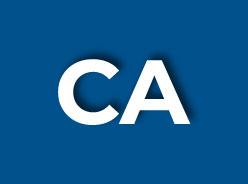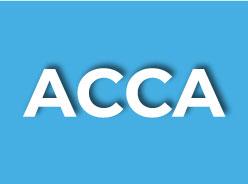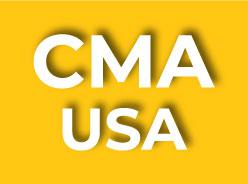With the pandemic, there is one professional that was untouched by the economic and financial changes: the commerce professionals. Financial accounting is ideal for those who have a good eye for detail, head for research and have a natural ability to summarise. If you are a commerce undergraduate you must be keeping an eye out to see courses that are going to suit you.
In this blog, we will be discussing the opportunities available under the technical brand of accountancy. We will be specifically digging deep into financial accounting and we will learn how it would be the right career choice for you.
Let us first understand what is financial accounting. It is a specialized field that utilizes your talent and potential to the maximum. It is a highly satisfying and rewarding profession to follow.
The financial branch of accounting consists of efficiently collecting, processing and summarizing financial transactions of the organizations you are a part of. The accountant will be responsible for preparing the financial statements, balance sheets and cash flow statements over a period of time. It is also their responsibility to outline the important details about the business's fiscal achievements.
In order to do the task effectively, it is important to use standardized formatting methods. It is also critical that the accountants will analyze and showcase the critical information in an intelligent and legible manner. The annual financial statement is a document that is essential as it will highlight the firm's performance for that fiscal year. It will be studied by the employees, clients, financial investors, vendors and other important stakeholders who are interested in knowing the financial health of the organization.
Here are some of the key features of financial accounting.
- All monetary transactions are recorded and non-monetary transactions will not be considered into the book of accounts
- Transactions that are Historical in nature will be considered, which means that the transactions took place in history
- Profit and loss accounts and maintenance of balance sheets are essential and are a legal requirement in the case of a company form of an organization
- This will disclose the performance in terms of profitability of the business as a whole
- It will follow the Accounting Principle and standard to finalize the accounts
- Financial reports have to be created in regular intervals - monthly, quarterly or annually. This will depend on the requirement of the company.
- The financial reports will keep the stakeholders (both inside and outside the organization) informed of the net profit of the company
- These records will allow the business to raise essential capital and will make them eligible to apply for loans or create a valuation.
What are the 3 different types of financial accounting
- Cash Accounting: The financial statements are prepared by the accountants, these statements will detail the cash-based transactions made by the business. The accountant is expected to analyse the different activities that were held by the business that was responsible for the cash flow
- Income Statement: The income statement is also often called a profit and loss statement in the financial accounting realm. The accountant is expected to record the expenses as well as the earnings of the business within a certain time frame. They are also expected to show if any losses were incurred during the period and highlight the profits as well.
- The balance sheet: The accountant's responsibility is to effectively list all the liability and assets of a company along with the owner’s equity.
How to be a financial accountant?
Financial accountancy is a very rewarding profession, which may have persuaded you to know more about how to be one. Let us look at the specific skills as well as the academic qualifications needed to join this branch of accounting. They are:
- A degree of certification from a reputed accounting organization
- A thorough understanding of the business functions
- The skill to comprehend and deliver the projects on the scheduled deadlines
- Good working knowledge of software and tools such as excel tally and other financial tools and reporting techniques.
- Great verbal and written communication skills
- Knowledge of statistics and the ability to analyse financial data
Why is ACCA the best financial accountancy course?
The Association of Chartered Certified Accountants (ACCA) is a well-established program, it is globally recognised and is the fasted growing accountancy organization. The organization has more than 500,000 students in 180 countries. The ACCA program in financial management is a certification that will help you be updated on the technical prowess and academic background needed to be the best as you enter the business. The qualification also ensures that as the student completes the course they will be well versed in all aspects of business and finance. They will be able to venture into any sector of business from banking to accounting, finance, auditing and much more. Students will have a thorough understanding of the basic accounting principles along with the advanced concepts. They will also learn how to apply this information in real-life citations through specific skill training sessions. The program will also help hone interpersonal skills, which are very essential in the current working environment.
ACCA entry requirements / Eligibility
To get started with your ACCA course, students are expected to have a minimum age of 18 and they should have completed their 10+2 with a total of 65% including English and Mathematics / Accounts. They are also expected to score at least 50% in the other subjects. The ACCA’s professional exams are being held twice yearly worldwide – June and December.
The ACCA Course Structure:
The course duration for ACCA is 2-3 years. The syllabus consists of a total of 15 papers, and out of it, students need to successfully complete 13 papers in order to be an ACCA member.
These 15 papers are divided into 2 levels –
- Fundamental level and
- Professional level
The fundamental level as the name suggests will cover the fundamental concepts of ACCA, this preliminary stage is further subdivided into two subdivisions. These are Applied Knowledge and Applied Skills Module.
The first module, Applied Knowledge, introduces to students the primary concepts behind financial accounting and management accounting. It also provides you with a broad understanding of all-important accounting techniques. All the papers on Applied Knowledge are objective and CBE - Computer Based Exams. There is no time limit/time restriction to these papers and can be tried anytime you prefer.
ACCA is considered the best course to consider as it’s:
- Flexible: This means that the students can decide when they want to write the exams, and can also decide how many papers they would like to attempt in a single try. This flexibility will enable students to plan and prepare for the exams in a more structured manner. Students also don't have to bother about writing an entire module if they do not clear one paper unlike with the CA course. This gives students the opportunity to pursue other popular degree courses along with ACCA, for eg: B.Com which is a very widely popular examination.
- Time-Saving: On average students will need 3-4 years to complete their graduation degree, now if along with that if they wish to complete a higher degree of specialization then they will have to spend another 2-3 years. So instead of spending 6-7 years to validate their education, students have the luxury of achieving a globally recognized professional qualification (Along with a graduation degree if they choose to) within a span of 4-5 years. They can easily save 3 years and instead step into work immediately. So while students of the same age are studying or trying to get a post-graduate degree, an ACCA would have already completed their course and have a well-reputed professional qualification in their hand.
- Exemption of papers - As mentioned earlier ACCA has 13 papers which are subdivided into 3 levels - Knowledge level, Skills level and professional level. If you are a graduate then you can skip the knowledge level papers. If you pursue any of the graduation-level papers you can get 9 paper exemptions in your ACCA and can attempt the P-level papers directly. You can get in touch with our career advisors to learn more about the graduation and post-graduation degrees you can pursue along with ACCA.
- Job opportunities - An ACCA qualification will open up job opportunities both in and out of the country, unlike other graduation courses. Once you finish the course you can be an ACCA member with access to the ACCA network where you will have access to 7,400 approved employers from over 180 counties spread across the world.
- Career Growth - Career growth is one of the highest determining factors when picking out a course. Having an ACCA tag to your name will give you an edge compared to your peers in the same role as this would give make you an expert in finance for eg: and will open avenues for you to climb up the corporate ladder.
- Good Remuneration: Job security and a good package are very important criteria when picking up a degree. Students will be able to achieve both when they pick ACCA. Unlike those with just graduation, you will definitely have a better advantage as mentioned earlier. The average pay package for an ACCA fresher would be 5-10 LPA depending on your performance and this number will keep going up with good experience.
If you wish to know more about the course please reach out to our career advisors who will help you with more information.

 ABOUT LAKSHYA
ABOUT LAKSHYA  WHY CHOOSE LAKSHYA
WHY CHOOSE LAKSHYA  MISSION AND VISION
MISSION AND VISION  CHARTERED ACCOUNTANCY (CA)
CHARTERED ACCOUNTANCY (CA)  ACCA
ACCA  CMA-USA
CMA-USA  RESULTS
RESULTS 


